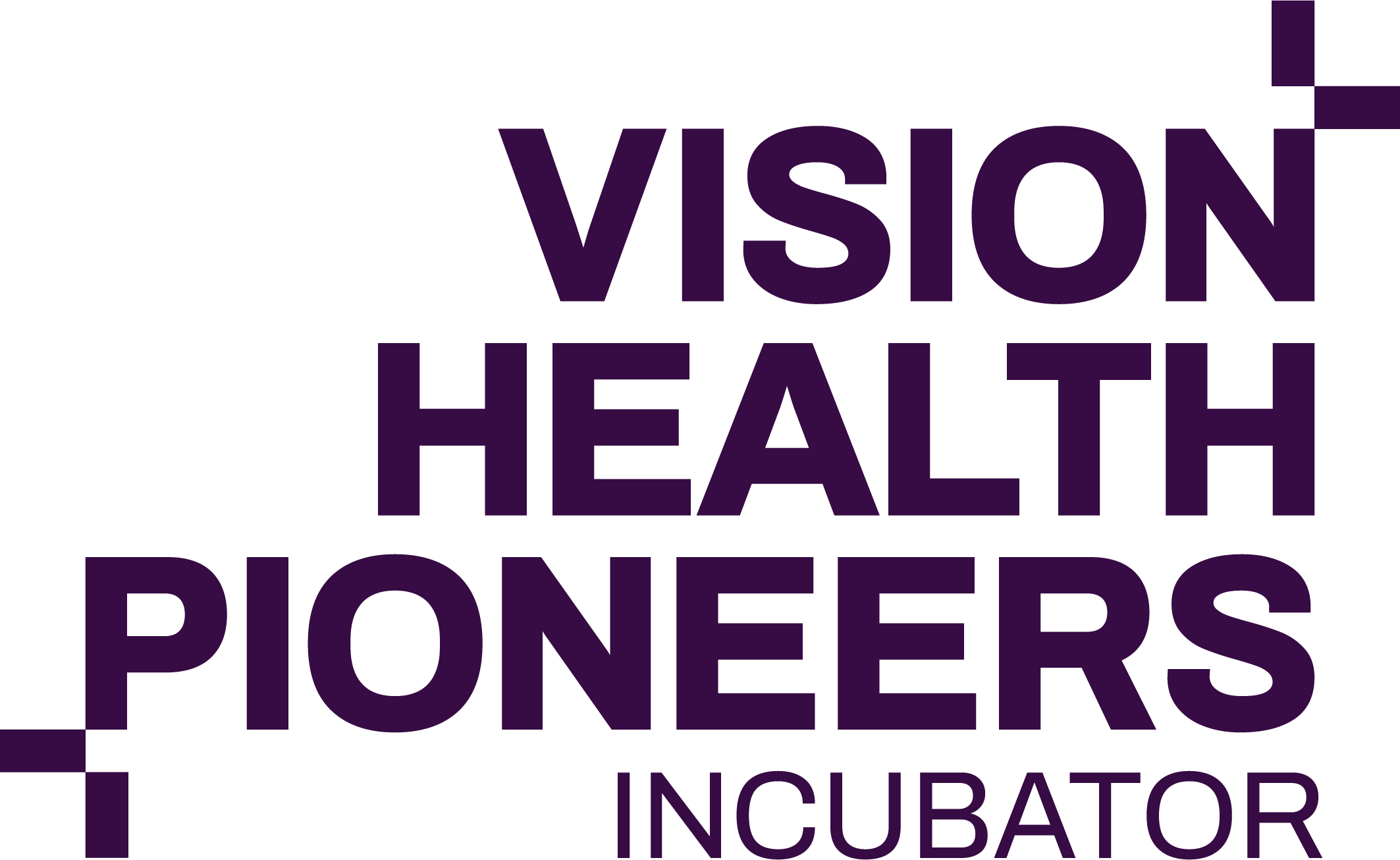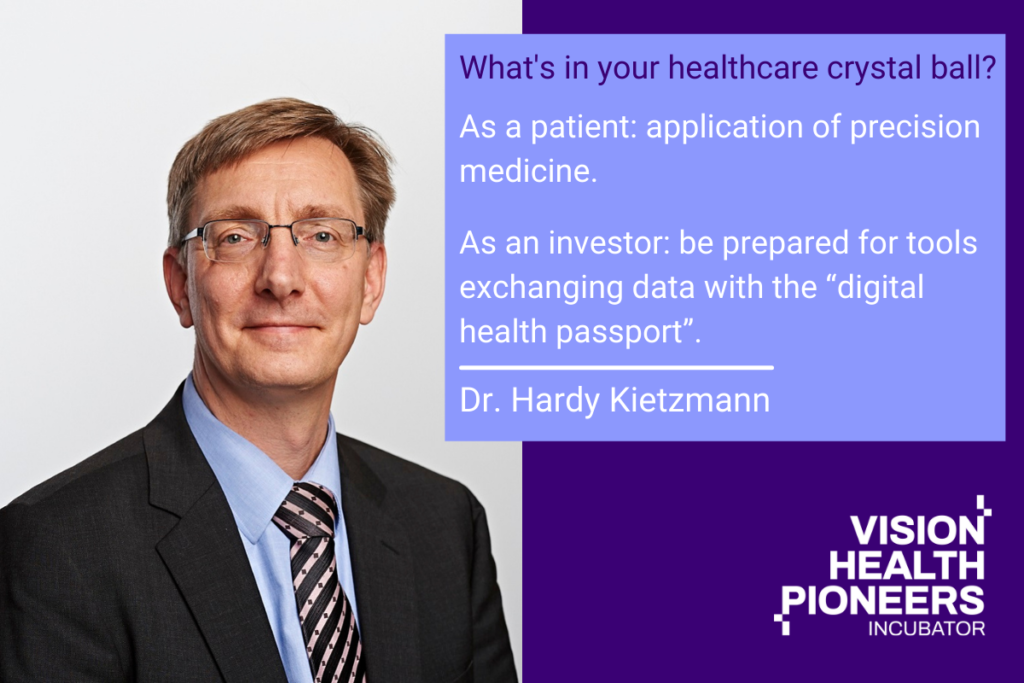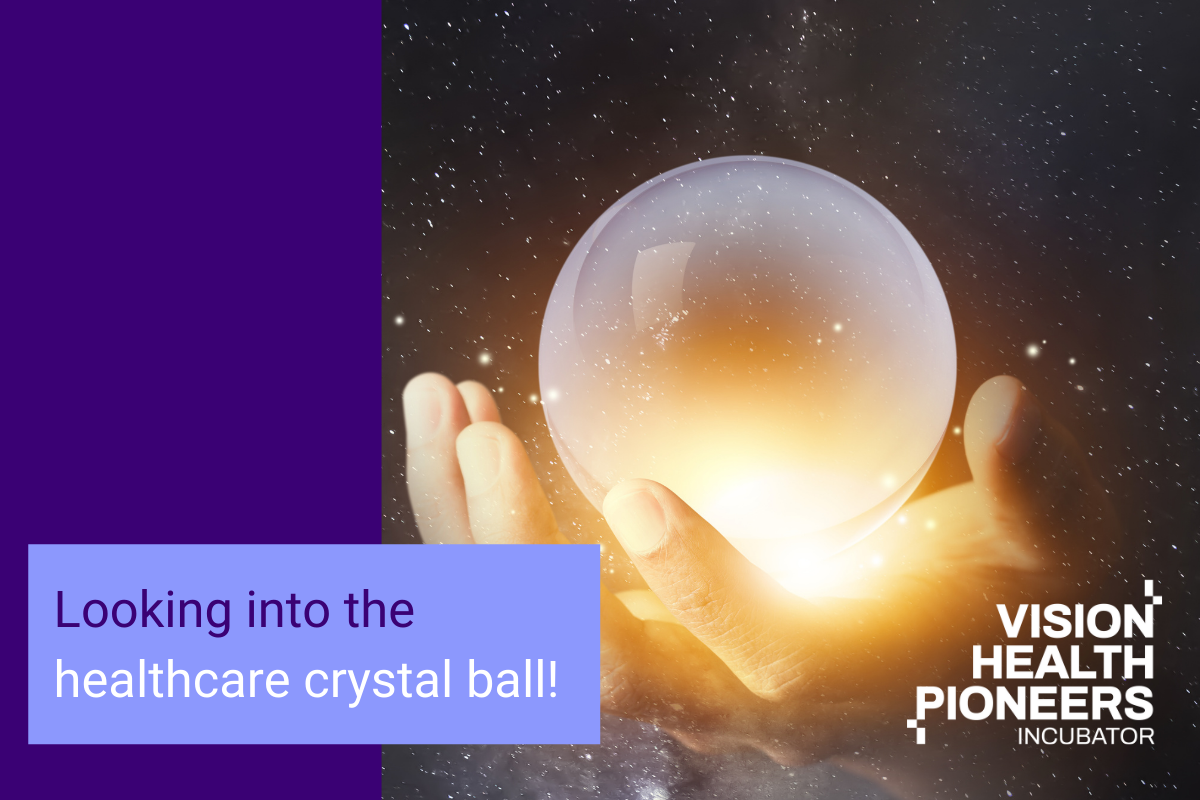
17 Aug What does INTO THE FUTURE mean for our community? Part 1
What does our insightful community of supporters, mentors, coaches and partners think of when it comes to ‘Into The Future’? We asked a handful for their thoughts on what innovation may happen in the near future, gaps that need solving in healthcare, what they can see in their crystal ball and more. We are thrilled to share their sharp, knowing and animating answers.
We are always fascinated by how our startups can find solutions to complex healthcare problems. At our INTO THE FUTURE Demo Day on 31st August 2021 the startups will present their businesses and explain how they solve issues for now and for the future. But we are equally as fascinating by what our community think of when it comes to the topic of ‘Into The Future’. Here are some of their answers…
Dr. Hardy Kietzmann, Consultant in the area of digital therapeutics, focus Germany: DiGA
What do you think will be the biggest change in healthcare in the next 5 years?
Significant steps towards precision medicine (personalized diagnostics before selecting the drug).
What kind of innovation do you want to see happen in the future of healthcare?
Digital health passport or however you want to call it, … starting with (e.g.) german ePA and then enlargement on fields and features (much quicker than currently promised) and finally genetics to be included.
Where are the gaps right now in healthcare that need solving first?
Speed on ePA implementation and installment associated international standards including MIOs (again: toooooo late timeline for MIOs).
If you could drop everything right now and create any related product or service – what would it be?
I am on it (just joined a small StartUp). 8-))
What can you see in your crystal ball? What does Into The Future of healthcare mean for you?
As a patient: application of precision medicine
As an investor: be prepared for tools exchanging data with the “digital health passport”
Kristin Memm, German Attorney at Law, Kanzlei KM
What do you think will be the biggest change in healthcare in the next 5 years?
The centralisation of data. Artificial intelligence will collect such data, evaluate it and analyse it in a way that opens up new horizons for diagnostics, diagnosis, medical risk assessment and treatment decisions. The biggest challenge emerging from this will be to clarify the legal responsibilities.
How can a professional law still regulate and supervise if it is limited to one federal state but medicine is practised across borders? How can a physician be hold responsible for an AI making the right assessment of a treatment decision if the physician does not know the database and algorithms behind the AI? On the other hand, the AI is not a legal entity in its own right.
Our legal system faces a major challenge here. So far, we have set and changed the law in order to react to undesirable changes in our social community. Laws are abstractly general and are interpreted by the jurisdiction in individual cases. This results in the law by which we judge actions as right or wrong. The speed at which digitalisation is advancing is challenging our legal system in that law and jurisprudence are too slow to react to significant changes. Laws that only react to changes regulate a state of affairs that is often already in the past when they are enacted. The judgement of a supreme court is long outdated by the time it is pronounced. Our legal system is too slow and too limited to keep pace with technological development. This might cause an even bigger change in healthcare than the technical development. When technical evolution overtakes legal evolution, everything possible is also feasible, regardless of liability, responsibility and justice.
We need to rethink and make laws for the future. It will be crucial that we do not overstate the risks we see today, but also do not understate the risks that lie far in the future.
What kind of innovation do you want to see happen in the future of healthcare?
A patient centred healthcare, that focusses on prevention and the patients needs more than on treating diseases. The medical reimbursement system has become unbalanced in recent years. When financial incentives are set in such a way that it is not profitable to keep a healthy patient healthy, it becomes lucrative in an economically managed system to make patients sicker than they are. I hope, that the digital innovations, that mostly focus on prevention of chronicle diseases and serious health damages, change this approach and lead to a more individual, symptom controlled and health orientated wholistic healthcare.
Where are the gaps right now in healthcare that need solving first?
The medical reimbursement system needs to be changed fundamentally. Hospitals should not be allowed to be governed by stock exchange listed companies. The role of the physician as someone who shall drive healthcare innovation but must not be guided by economic interests must be reconsidered. In general we have to evaluate, who are our future healthcare providers, what drives them and how they are regulated. Medical self-governing bodies need to rethink their raison d’être. We all together should define the vision of our future healthcare and redefine our goals and mission for each healthcare body, each healthcare provider and each healthcare consumer.
If you could drop everything right now and create any related product or service – what would it be?
If I would drop everything for creating a healthcare related service it would be a patient centred App in non-hospital palliative care. With a focus on the therapeutic goal set together with the patient I would design a system that connects all doctors and nurses involved in the treatment, the patient and his or her caring relatives on the basis of a data-secure messenger service, provides access to the patient’s medical records and precautionary documents (such as the power of attorney for health care or advance directives) and that offers the option of requesting a multidisciplinary ethics vote in difficult decision-making situations.
What can you see in your crystal ball? What does Into The Future of healthcare mean for you?
This crystal ball is still very unclear and fuzzy. The future of healthcare depends on our ability to define a shared vision, critically review our existing systems and make the necessary changes, as well as our ability to abandon our retrospective assessment of current risks and exchange it for an objective prospective assessment of future challenges and regulatory requirements. If we can do this, the invention of digital health products has the potential to lead us to an ideal future of healthcare, where artificial intelligence can help provide the best valued and most individualised care, but where the patient, his or her health and a trusted doctor-patient relationship are at the heart of healthcare.
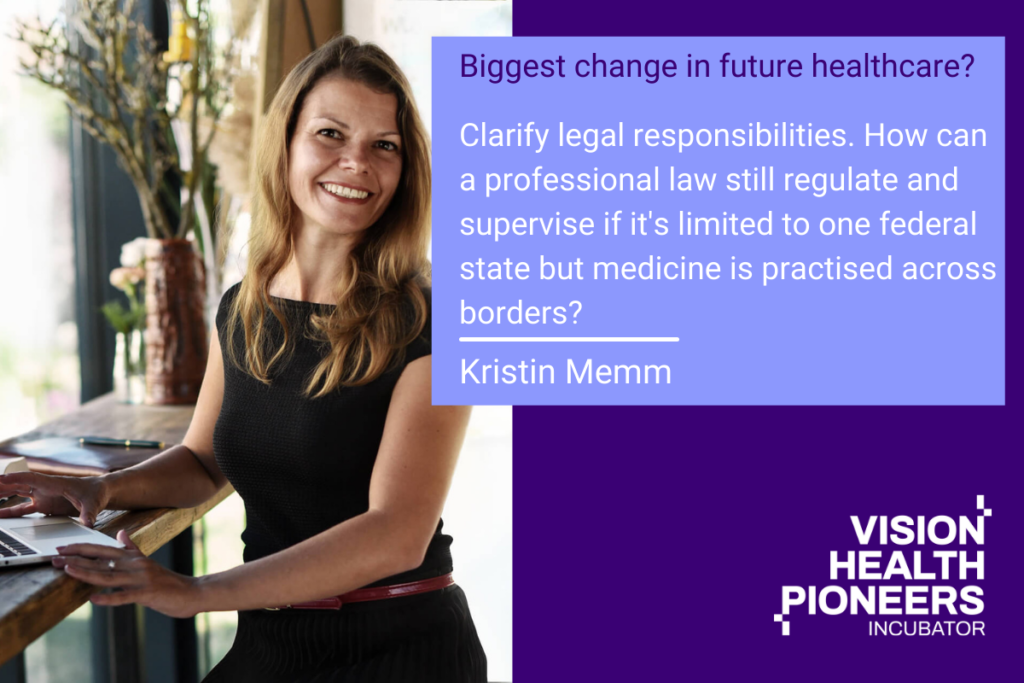
Jeremy Dähn, Head of Digitization and Innovation, Johanniter
What do you think will be the biggest change in healthcare in the next 5 years?
Patients and healthy people out there will monitor their vital signs continuously, which will be analyzed in newly established data centers in hospitals. Hospitals can immediately react to incidents, relapses or even preventive care for healthy customers. Therefore the cross-sectoral borders will merge.
What kind of innovation do you want to see happen in the future of healthcare?
I really would like to see the Tricorder of Star Trek. Probably it will rather be in the watch, although the Tricorder does much more, which a watch can do in the near future. 🙂
Where are the gaps right now in healthcare that need solving first?
In Germany, it is still the regulatory part. The cross-sectoral borders are cumbersome for innovation along the patient journey.
If you could drop everything right now and create any related product or service – what would it be?
The Tricorder!
What can you see in your crystal ball? What does Into The Future of healthcare mean for you?
Healthcare will focus on three areas. Taking care of the healthy ones to stay healthy, curing people with one-time incidents like accidents and helping patients with chronic diseases to cope with their illness, fostering adherence, and support behavioral change.
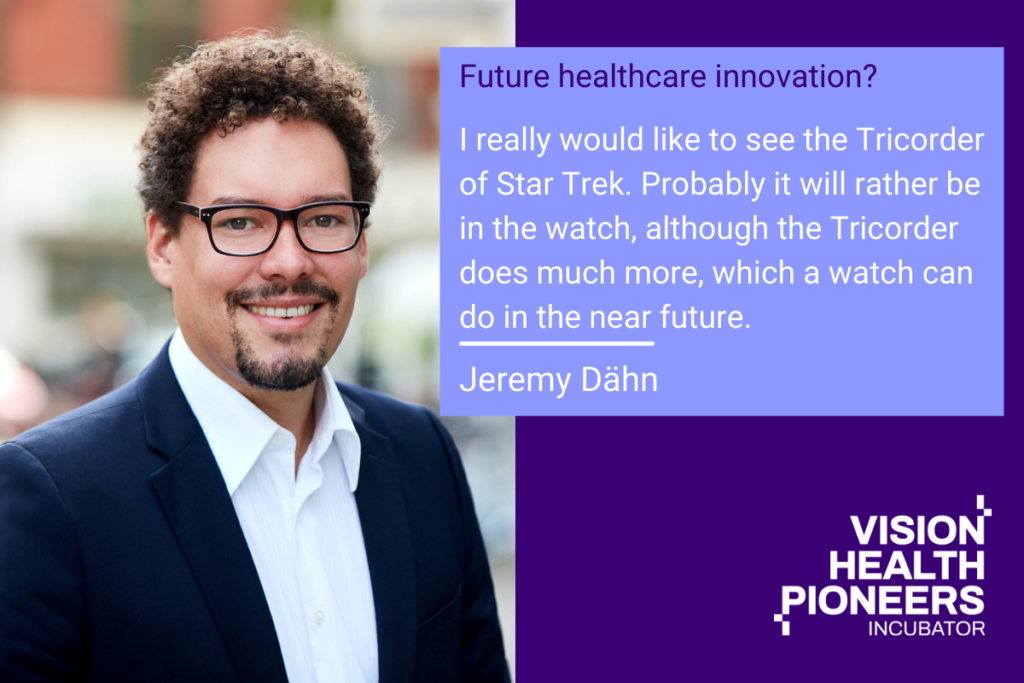 Thank you to our community for sharing their insights. Find out more about our upcoming Demo Day – INTO THE FUTURE – on 31 August 2021.
Thank you to our community for sharing their insights. Find out more about our upcoming Demo Day – INTO THE FUTURE – on 31 August 2021.


